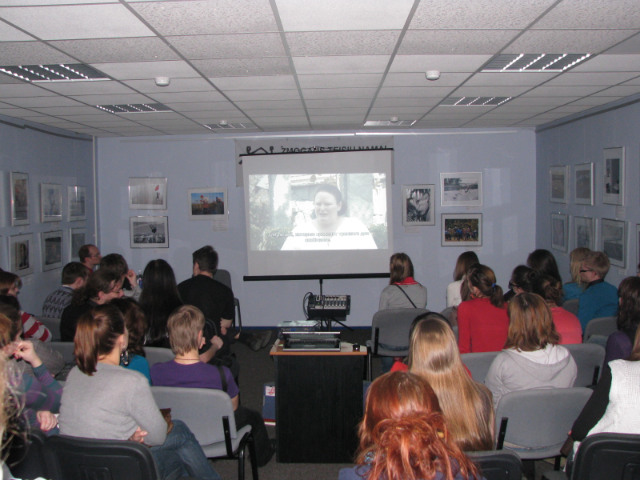 Facebook, Tweeter or a simple mobile phone could be more than mere means of communication. They could also help in pursuing some very concrete goals: bring down a level of local authorities’ corruption, free a person from an unlawful detention, and attract global community’s attention to a certain problem. And 25 stories shown in the film proved that these tactics had indeed worked and yielded positive results.
Facebook, Tweeter or a simple mobile phone could be more than mere means of communication. They could also help in pursuing some very concrete goals: bring down a level of local authorities’ corruption, free a person from an unlawful detention, and attract global community’s attention to a certain problem. And 25 stories shown in the film proved that these tactics had indeed worked and yielded positive results.
An informal union of IT specialists, HR defenders, members of civic organisations, who gathered in India in 2009, conceived the idea of this film. “It was rather easy. Everybody shared their story on how they had overcome injustices using new media. We just filmed the most interesting stories and systematised them. And that is what there was for a film! Easy to make but how useful!” Tabias Veiman, one of the Vilnius screening organisers, explained. He was convinced that the film popularity, which had already been shown in more that two dozen countries, was linked with its practical usefulness. It could really inspire for action.
More than 60 Belarusian HR defenders, members of civic organisations and generally active people gathered for the screening. Hopefully now they would be able to apply all shown methods and tactics in their day-to-day life. Vital Birukou, coordinator of the youth project moladz.org and a screening organiser, pointed out that “information is a very power tool if one knows how to channel it in the right direction.” Vital believed that the film would make civic activism more appealing especially in Belarus where the human rights problem is rather salient. Although the youth activist stressed that this project was not meant to be political and it was mainly directed at self-development of young and active individuals.
 The discussion, which followed after, demonstrated that young and active people were indeed looking for new ways to express themselves and defend their rights. Siarhei Androsenka, the GayBelarus leader, and a famous Belarusian blogger Chryscina aka chris_gomel pointed out that “the more instruments people have at their disposal the more chances they have to win. And now we know how to defend our selves.”
The discussion, which followed after, demonstrated that young and active people were indeed looking for new ways to express themselves and defend their rights. Siarhei Androsenka, the GayBelarus leader, and a famous Belarusian blogger Chryscina aka chris_gomel pointed out that “the more instruments people have at their disposal the more chances they have to win. And now we know how to defend our selves.”


